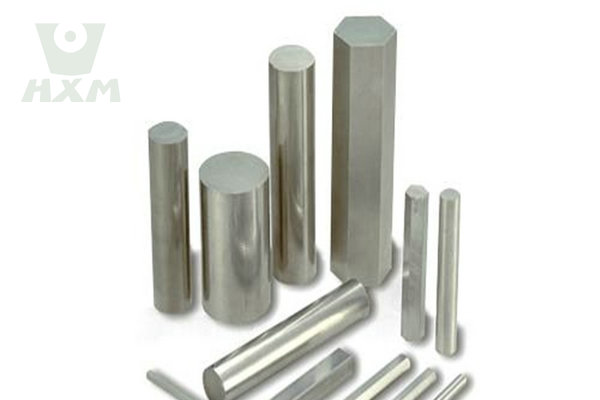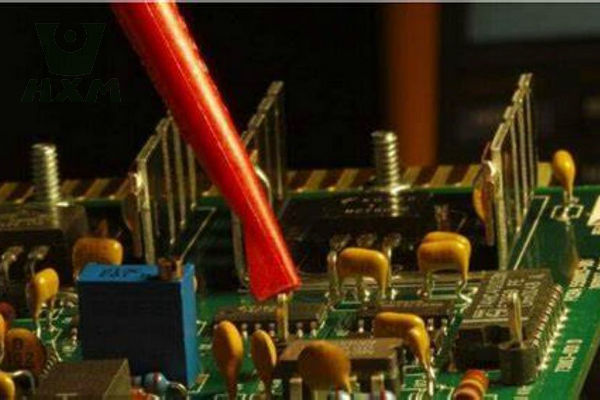Precision Alloy Supplier and Manufacturer From China
As a leading supplier of precision alloy steel, we provide high-quality alloy steel materials, which are widely used in aerospace, automobile manufacturing, mechanical equipment, electronics industry, and other fields. We provide global customers with a stable supply chain and high-quality customized services to ensure that each batch of precision alloy steel meets strict international standards.
As one of the professional precision alloy suppliers and manufacturers in China, we not only offer competitive prices, but also ensure sufficient stock to meet your different purchasing needs. Contact us directly for detailed information of our products and also learn about our company’s capabilities.

China Precision Alloy For Sale
Grades: 1J22 1J50 1J79 1J85 3J21 3J53 4J29 4J32 4J36 4J39 4J40 4J42 4J50, D2, H13, 718, 4340, etc.
Sizes: Custom sizes available
Shapes: Sheet/Plate/Bar/Tube/Strip/Coil/Wire, etc.
Our precision alloy products meet international standards and provide excellent mechanical properties and corrosion resistance. Whether you are looking for precision alloy suppliers, manufacturers, or want to know the market prices and stock, we can meet your needs. Contact us now to get accurate quotes and stock information!
| Alloy Type | Brand | Equivalent Brand | Cold Strip | Cold Wire | Rolled Bar |
| Soft magnetic alloys | 1J21 | Hiperco 50 | √ | ||
| 1J27 | Hiperco 27 | √ | |||
| 1J22 | Hiperco 50 | √ | √ | ||
| 1J50 | √ | √ | |||
| 1J51 | √ | ||||
| 1J79 | Permalloy | √ | √ | √ | |
| 1J85 | Super-permalloy | √ | √ | √ | |
| 1J116 | √ | ||||
| 1J117 | √ | ||||
| Half-soft magnetic alloy | 2J4 | √ | |||
| 2J85 | √ | √ | √ | ||
| Elastic alloys | 3J1 | √ | √ | ||
| 3J9 | √ | √ | √ | ||
| 3J21 | √ | √ | |||
| 3J33 | √ | √ | |||
| 3J53 | √ | ||||
| 3J78 | √ | √ | √ | ||
| Expansion alloys | 4J29 | Covar | √ | √ | √ |
| 4J33 | √ | √ | |||
| 4J36 | Invar | √ | √ | √ | |
| 4J42 | √ | √ | √ | ||
| 4J50 | √ | √ | √ | ||
| Resistance alloys | 6J10 | √ | √ | ||
| 6J12 | √ | ||||
| 6J20 | √ | √ | √ | ||
| 6J22 | Karma | √ | |||
| 6J23 | Evanohm | √ | |||
| 6J40 | Constantan | √ | |||
| High resistance alloys for electrical heating | Cr20Ni80 | √ | |||
| Cr20Ni35 | √ | ||||
| Cr20Ni30 | √ |
Precision Alloy Data Sheet - China Alloy Suppliers
Chemical Composition Comparison (%)
| Material | C | Cr | Ni | Mo | V | Ti | Others |
|---|---|---|---|---|---|---|---|
| AISI 4140 | 0.38 – 0.43% | 0.80 – 1.10% | 0.25 – 0.40% | 0.15 – 0.25% | 0.03 – 0.10% | – | Manganese: 0.60-0.90% |
| AISI 4340 | 0.38 – 0.43% | 0.60 – 0.75% | 1.60 – 2.00% | 0.20 – 0.30% | 0.05 – 0.15% | 0.60 – 0.90% | Silicon: 0.20-0.35% |
| AISI 8620 | 0.18 – 0.23% | 0.30 – 0.60% | 0.40 – 0.70% | 0.15 – 0.25% | 0.05 – 0.15% | – | Manganese: 0.70-0.90% |
| AISI 52100 | 0.95 – 1.10% | 1.30 – 1.60% | 0.25 – 0.45% | 0.20 – 0.30% | 0.10 – 0.15% | – | Manganese: 0.30-0.50% |
| AISI 1045 | 0.43 – 0.50% | – | – | – | – | – | Manganese: 0.60-0.90% |
| AISI 4340 | 0.38 – 0.43% | 0.60 – 0.75% | 1.60 – 2.00% | 0.20 – 0.30% | 0.05 – 0.15% | 0.60 – 0.90% | Silicon: 0.20-0.35% |
Physical Properties Comparison
| Material | Density (g/cm³) | Melting Point (°C) | Thermal Conductivity (W/m·K) | Electrical Resistivity (μΩ·cm) | Coefficient of Thermal Expansion (10⁻⁶/°C) |
|---|---|---|---|---|---|
| AISI 4140 | 7.85 | 1420 | 45 | 0.50 | 11.0 |
| AISI 4340 | 7.85 | 1425 | 44 | 0.50 | 12.0 |
| AISI 8620 | 7.85 | 1400 | 45 | 0.52 | 11.5 |
| AISI 52100 | 7.85 | 1500 | 42 | 0.50 | 10.5 |
| AISI 1045 | 7.85 | 1500 | 46 | 0.52 | 12.0 |
Mechanical Properties Comparison
| Material | Tensile Strength (MPa) | Yield Strength (MPa) | Elongation (%) | Hardness (Rockwell C) | Impact Toughness (J) |
|---|---|---|---|---|---|
| AISI 4140 | 655 – 850 | 415 – 635 | 16 – 20 | 28 – 32 | 40 – 60 |
| AISI 4340 | 745 – 895 | 550 – 750 | 12 – 18 | 32 – 36 | 50 – 70 |
| AISI 8620 | 550 – 700 | 400 – 600 | 18 – 20 | 28 – 30 | 40 – 50 |
| AISI 52100 | 850 – 1000 | 600 – 850 | 8 – 12 | 58 – 64 | 35 – 55 |
| AISI 1045 | 600 – 850 | 380 – 580 | 16 – 20 | 20 – 30 | 30 – 50 |
As a leading supplier of precision alloy steel, we are committed to providing our customers with the highest quality products and services. Contact us today to get a quote for custom precision alloy steel!
Precision Alloy Application- China Alloy Manufacturers
Our precision alloy steel materials are widely used in multiple industries, mainly including:
Aerospace: Precision alloy steel is often used in aviation components to manufacture high-strength structural parts and engine parts.
Automotive Industry: Used in engine parts, transmission systems and chassis parts of high-performance vehicles.
Industrial Machinery: Precision alloy steel is used to manufacture wear-resistant mechanical parts and extend the service life of equipment.
Electronics Industry: Manufacture of high-precision electronic components and tools.

Precision alloys are widely used in aerospace, electronics, energy, automobile manufacturing and other industries. With their high stability and excellent magnetic conductivity, they have become ideal materials for high-end equipment and precision instruments. As a professional precision alloy manufacturer and supplier, we offer a variety of specifications, sufficient inventory, and support customization. Welcome to consult!
Product Features of Precision Alloy
Precision alloy steel is a steel with excellent properties such as high strength, corrosion resistance, and high-temperature resistance through special alloying treatment. Compared with ordinary steel, precision alloy steel has higher hardness and wear resistance, and is especially suitable for key components that require high strength and durability.
High Strength: Precision alloy steel provides higher tensile strength and yield strength through a unique alloy design, suitable for high-strength environments.
Strong Corrosion Resistance: It has good oxidation resistance and corrosion resistance, suitable for long-term use in harsh environments.
High-Temperature Stability: Under high-temperature conditions, precision alloy steel can still maintain excellent mechanical properties.
Good Processing Performance: During the processing, precision alloy steel has good cutting performance and is suitable for precision processing.
Our precision alloy products have excellent corrosion resistance, good magnetic conductivity, excellent mechanical strength and high temperature stability, which can meet the needs of various demanding applications. Whether you need to purchase in bulk or customize special specifications, we can provide competitive prices and sufficient stock to ensure fast delivery!
FAQ From Huaxiao Metal Supplier
What is Precision Alloy?
Precision Alloy Steel is a high-performance steel that has been specially alloyed and has excellent mechanical properties, corrosion resistance, high temperature resistance and high strength. It is usually used in applications that require extremely high precision and performance, and is widely used in aerospace, automobile manufacturing, tool manufacturing, electronic equipment and various high-precision engineering projects.
What is the price of precision alloy steel?
The price of precision alloy steel is influenced by several factors:
Alloy Composition: The more alloying elements used in the steel, the higher the cost.
Manufacturing Process: Precision steel requires high-precision production methods (like heat treatment and exacting machining), which can raise the price.
Volume of Purchase: Bulk purchasing often results in lower per-unit costs.
Market Fluctuations: The price of raw materials can fluctuate, affecting the final cost of precision alloy steel.
Generally, precision alloy steel tends to be more expensive than regular steel due to its enhanced properties and the advanced processes used in its production.
Which industries use precision alloy steel?
Precision alloy steel is widely used across various industries:
Aerospace: For manufacturing aircraft parts, engine components, and other high-performance structures.
Automotive: In producing engine components, drivetrains, chassis systems, and suspension parts.
Machinery: For manufacturing high-precision tools, dies, molds, and machinery parts.
Energy: In oil and gas drilling, power generation, and the production of high-pressure vessels and heat exchangers.
Electronics: For the production of high-precision electronic components and devices.
How do you choose the right precision alloy steel for your application?
To select the appropriate precision alloy steel, you should consider the specific requirements of your application:
Strength Requirements: Choose alloy steel with high tensile and yield strength for applications like structural components and aerospace parts.
Corrosion Resistance: If your components will be exposed to chemicals, moisture, or marine environments, select steel with excellent corrosion resistance.
Machinability: For applications requiring intricate machining, ensure the steel has good workability.
High-Temperature Performance: For components that will operate in extreme temperatures, such as engine parts or turbines, select a steel that maintains performance at elevated temperatures.
Selecting the right steel depends on the exact needs of your project, and consulting with material experts can ensure the optimal choice for your application.
What is the difference between precision alloy steel and regular alloy steel?
The main differences between precision alloy steel and regular alloy steel are:
Alloy Composition: Precision alloy steels have a more precise composition of alloying elements, typically with higher purity, providing superior performance.
Manufacturing Process: Precision alloy steels are produced under more controlled processes to ensure high-quality consistency across each batch, meeting stringent standards.
Performance: Precision alloy steels offer higher strength, hardness, corrosion resistance, and heat resistance, making them ideal for demanding applications in industries such as aerospace, precision tooling, and high-performance automotive parts.
How does precision alloy steel enhance the performance of mechanical components?
Precision alloy steel significantly improves the performance of mechanical components by:
Tensile Strength: It is capable of withstanding higher stresses, making it suitable for high-strength applications like automotive engine components and aircraft structures.
Wear Resistance: Precision alloy steel resists wear and tear, which is crucial for parts subjected to continuous friction, such as cutting tools and machinery components.
Corrosion Resistance: It provides excellent protection against corrosion, especially in harsh chemical or marine environments, increasing the longevity of parts.
High-Temperature Stability: It retains mechanical properties and dimensional stability even in high-temperature environments, making it ideal for engines, turbines, and other high-heat applications.



